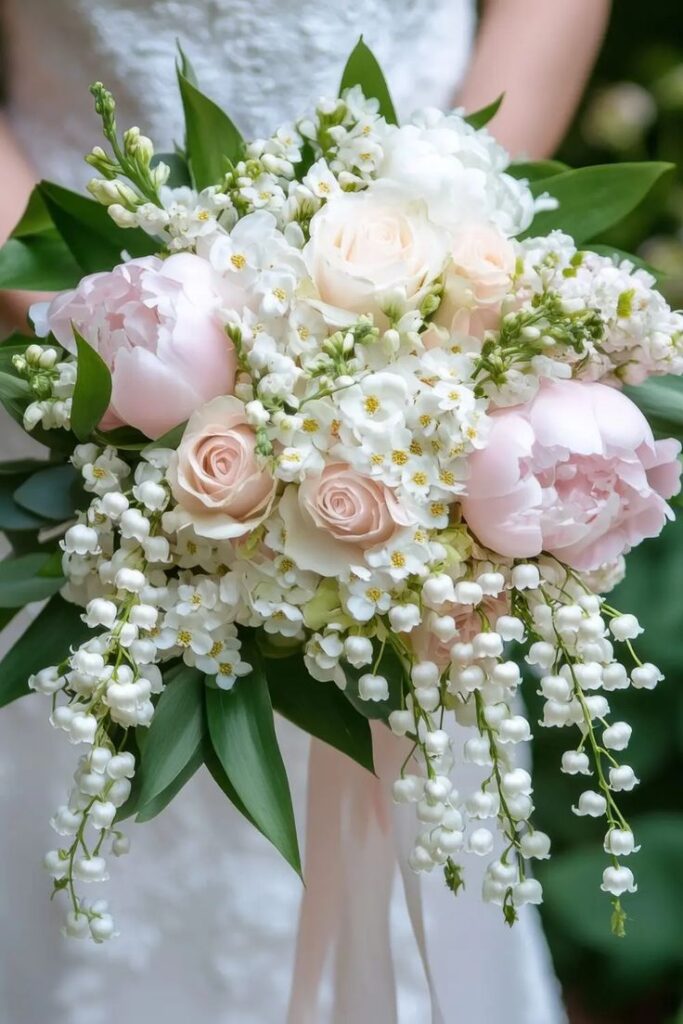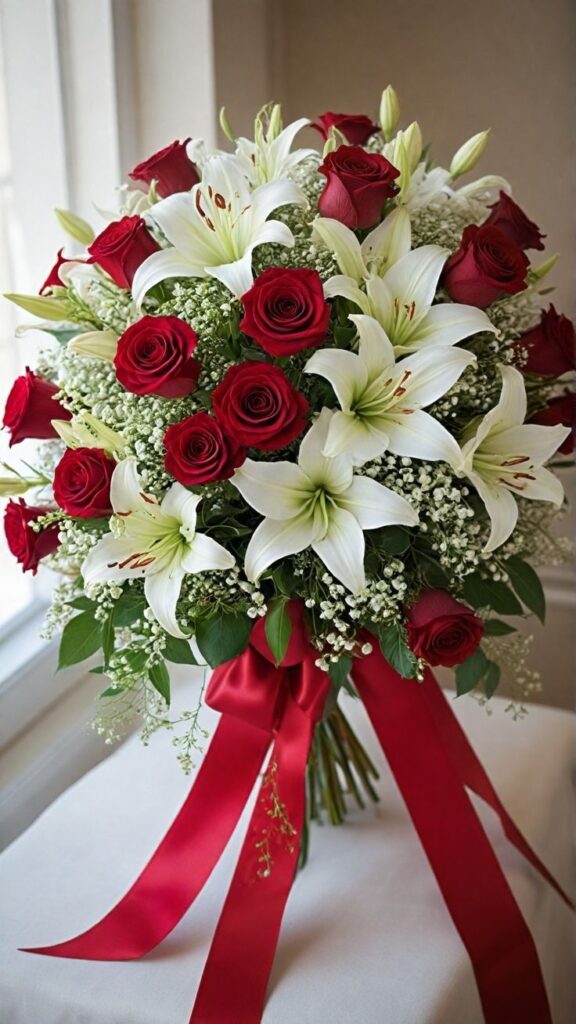How to Choose The Right Flower For Every Occasions. Flowers have long served as a universal language of emotion. Whether celebrating a joyful milestone, expressing sympathy, or simply brightening someone’s day, flowers carry meaning that transcends words. However, not all flowers are suited to every situation. The type, color, and arrangement of flowers you choose can significantly impact how your gesture is received. To make the most of this powerful form of communication, it’s essential to understand how to choose the right flower for every occasion.
Understanding the Language of Flowers
Before diving into specific events, it’s important to acknowledge floriography, or the language of flowers. This 19th-century concept assigned meanings to different blooms, allowing people to send secret messages through floral arrangements. While modern interpretations are less rigid, many of these meanings remain culturally relevant today.
For example:
- Roses represent love and passion.
- Lilies symbolize purity and renewal.
- Chrysanthemums signify loyalty and longevity.
- Carnations can express admiration or sorrow, depending on the color.
Having a foundational understanding of floral symbolism can guide your choices and help your gesture resonate more deeply.

1. Weddings: Love, Commitment, and Joy
Weddings are perhaps the most flower-intensive events. Here, flowers serve aesthetic and symbolic purposes, conveying romance, purity, and commitment.
- Best Choices: Roses (especially red or white), lilies, peonies, hydrangeas, and orchids.
- Symbolism:
- Roses are classic for love.
- Peonies suggest prosperity and a happy marriage.
- Calla lilies represent beauty and elegance.
- Tips: Consider the season to ensure freshness and affordability. Use the couple’s preferred color scheme and blend traditional blooms with personal favorites for a unique touch.

2. Funerals and Sympathy: Comfort and Respect
Flowers at funerals or for grieving families serve to honor the deceased and provide comfort to the bereaved.
- Best Choices: Lilies, chrysanthemums, carnations, roses (white or soft hues), and gladioli.
- Symbolism:
- Lilies signify the restored innocence of the soul.
- Chrysanthemums are associated with death and mourning in many cultures.
- White roses symbolize reverence and remembrance.
- Tips: Stick to muted colors like white, cream, soft pink, and lavender. Consider cultural and religious traditions, as some flowers may not be appropriate in all settings.

3. Birthdays: Celebration and Individuality
Flowers for birthdays should reflect the recipient’s personality and bring joy.
- Best Choices: Gerbera daisies, sunflowers, tulips, roses, and mixed seasonal bouquets.
- Symbolism:
- Daisies and sunflowers convey cheerfulness.
- Tulips suggest affection and good wishes.
- Tips: Use the recipient’s favorite color or flower if known. You might also consider birth month flowers:
- January – Carnation
- May – Lily of the Valley
- August – Gladiolus, etc.

4. Anniversaries: Celebrating Love and Time
Anniversaries mark a special bond and deserve flowers that speak to romance, memory, and enduring commitment.
- Best Choices: Roses, carnations, lilies, orchids, or the specific flower for the anniversary year (e.g., daisies for 5 years, daffodils for 10 years).
- Symbolism:
- Roses, especially red, continue to dominate for romantic anniversaries.
- Orchids symbolize rare and delicate beauty.
- Tips: Tailor the arrangement to reflect the couple’s journey. Including the wedding flower or color theme can be a nostalgic and meaningful gesture.

5. Graduations: Success and New Beginnings
Graduations mark achievement and the start of a new chapter. Flowers should be vibrant and uplifting.
- Best Choices: Irises, sunflowers, hydrangeas, carnations, and roses.
- Symbolism:
- Sunflowers represent adoration and success.
- Irises symbolize wisdom and courage.
- Tips: Use school colors or add congratulatory notes. Bouquets for graduates are often wrapped in paper or ribbon for easy holding during ceremonies.

6. Get Well Soon: Healing and Encouragement
When someone is ill or recovering, flowers can provide emotional and psychological support.
- Best Choices: Daffodils, peonies, hyacinths, gerbera daisies, and tulips.
- Symbolism:
- Daffodils represent rebirth and new beginnings.
- Hyacinths suggest peace and tranquility.
- Tips: Choose non-allergenic flowers if the recipient is in a hospital or sensitive to scents. Bright colors like yellow and orange can boost mood and positivity.

7. Romantic Gestures: Passion and Affection
Whether it’s Valentine’s Day, a proposal, or just a spontaneous declaration of love, flowers are a timeless romantic token.
- Best Choices: Red roses, tulips, orchids, ranunculus, and gardenias.
- Symbolism:
- Red roses are the ultimate symbol of passionate love.
- Tulips are more playful and modern, representing perfect love.
- Tips: Pair flowers with a handwritten note or small gift. Consider your partner’s taste—some may prefer wildflowers or unconventional arrangements over traditional red roses.

8. Thank You and Appreciation: Gratitude in Bloom
Expressing thanks with flowers adds a personal and heartfelt touch.
- Best Choices: Hydrangeas, daisies, irises, pink roses, and alstroemeria.
- Symbolism:
- Hydrangeas express heartfelt gratitude.
- Pink roses symbolize admiration and appreciation.
- Tips: Keep arrangements cheerful and modest. Small posies or potted plants also work well for office settings or casual gestures.

9. New Baby: Welcoming Life
Welcoming a new baby into the world is a joyful occasion that calls for soft, gentle, and celebratory blooms.
- Best Choices: Daisies, roses, lilies, peonies, and baby’s breath.
- Symbolism:
- Baby’s breath symbolizes innocence and purity.
- Peonies represent good fortune and a happy life.
- Tips: Use pastel shades—pink for girls, blue for boys, or gender-neutral yellows and whites. Potted flowers or small arrangements work well for hospital visits or home deliveries.
10. Housewarming: Wishing Warmth and Growth
For new homeowners, flowers can represent good luck, prosperity, and fresh beginnings.
- Best Choices: Bamboo, succulents, orchids, lavender, and geraniums.
- Symbolism:
- Bamboo is thought to bring luck and resilience.
- Lavender suggests calm and domestic peace.
- Tips: Choose long-lasting or potted varieties that add life to a home. Pair with a personalized vase or planter for a thoughtful touch.

Final Thoughts
Choosing the right flower for each occasion involves more than aesthetics. It’s a gesture that, when done thoughtfully, communicates feelings, intentions, and respect. Pay attention to:
- Color: Red for love, white for purity, yellow for friendship, purple for admiration.
- Culture: In some cultures, certain flowers are inappropriate for specific events (e.g., white chrysanthemums for funerals in Asia).
- Personal Preference: Whenever possible, tailor your floral gift to the recipient’s tastes or story.
In essence, flowers are more than beautiful arrangements—they are living symbols that help us mark life’s most meaningful moments. Whether offering comfort, congratulations, or love, choosing the right flowers ensures your message blooms exactly as intended.
if you are intrested in our product then visit us : levishpetals.site
if you are intrested in any types of books visit at : readinhub.site


